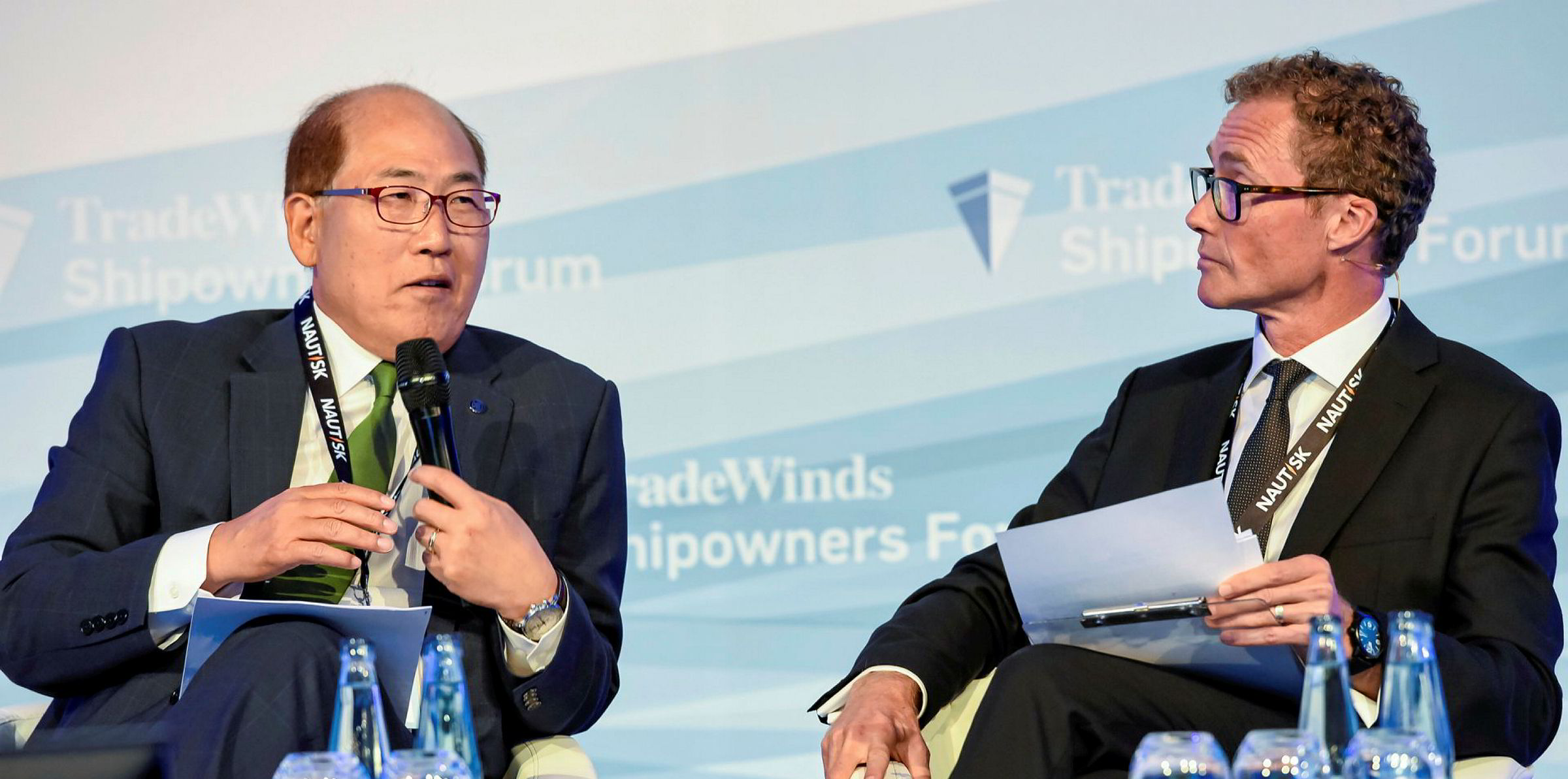Kitack Lim has won election unopposed to a second four-year term as secretary general of the International Maritime Organization as the industry heads towards a period of unprecedented regulatory change.
The South Korean maritime diplomat today won the support of the 40 nations which are members of the UN agency's steering council at a meeting held in private today in London.
His second term will start in January 2020, subject to the formal ratification of the IMO's overall assembly in December 2019.
Lim was the dark horse victor in his first election in 2015, beating several strong rivals on a platform of building a pragmatic consensus between governments and industry under the slogan 'a voyage together'.
Since taking up his position at the start of 2016, he has lead the IMO to push ahead with implementation of a big cut in sulphur and nitrogen ship exhaust emissions from the start of 2020 which is set to be the biggest upheaval in shipping markets for a decade.
IMO followed this earlier this year by setting ambitious aims to cut carbon emissions by 50% by 2050.
Details of drawing the roadmap of how the industry moves towards that target will be the biggest issue in his in box in this second term.
He will also face the challenge of addressing criticism of IMO for allowing industry to have excessive influence in the rule-making process.
Speaking at the TradeWinds Shipowners Forum at the SMM technology trade fair in Hamburg in September, Lim conceded the industry had set itself an ambitious goal in reducing sulphur emissions from 2020.
But he urged the industry to contribute to ongoing discussions relating to this and to cutting greenhouse gas emissions by 2050.
“We cannot succeed without reaching a consensus and the understanding of the industry,” he said.
Lim's re-election reverts to the common past practice of secretary-generals serving more than one term.
His predecessor, Japan's Koji Sekimizu served for only four years before standing aside for personal reasons.
IMO member nations on the council include the US, China, Norway and the UK among the 10 largest providers of shipping services. A further 10 including Brazil, German, Australia and India have a large interest in seaborne trade.
Another 20 represent those to ensure a wide geographic spread including Singapore, Liberia, Denmark, Egypt and Chile.



